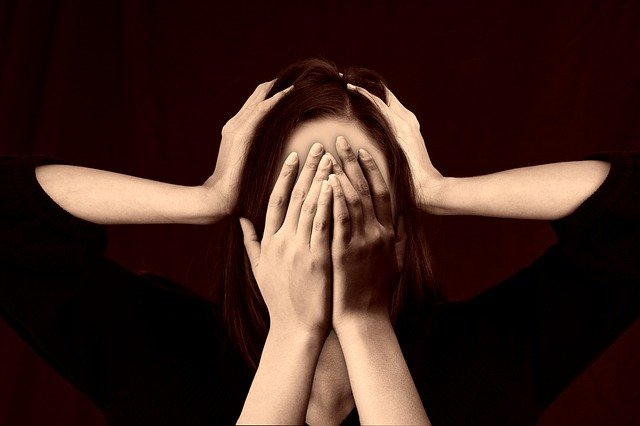
Bipolar disorder, previously known as manic depression, is a mental illness characterized by frequent changes in mood. Emotional highs (mania or hypomania) and lows (depression) are characteristic features.
You may feel sad or hopeless, lose interest or pleasure in most activities, and experience mood swings when you’re depressed.
You may feel euphoric, full of energy or unusually irritable when your mood changes to mania or hypomania (less severe than mania). Sleep, energy, activity levels, judgment, behavior, and cognitive clarity can be affected.
Signs of bipolar disorder
These are some signs that you or someone you know may be struggling with bipolar disorder:
- Experiencing extreme mood swings, with periods of mania and depression
- Having a hard time managing daily tasks due to changes in energy levels and mood
- Feeling like you’re constantly on an emotional roller coaster
- Losing interest in activities you used to enjoy
- Acting impulsively and engaging in risky behaviors
- Having difficulty concentrating or making decisions
- Experiencing paranoia or delusions during manic episodes
Bipolar disorder types
There are three main types of bipolar disorder:
Bipolar I Disorder
This is the most severe type, and is characterized by manic episodes that last at least seven days, or require hospitalization. Episodes of depression may also occur.
Bipolar II Disorder
This type is characterized by a pattern of depressive episodes and hypomanic episodes, but the manic episodes are not as severe as in bipolar I disorder.
Cyclothymic Disorder (also called Cyclothymia)
This is a milder form of bipolar disorder, characterized by less severe manic and depressive episodes. However, these episodes still significantly interfere with daily life.
What is it like to have bipolar disorder?
Bipolar disorder can be a very challenging condition to live with. It can cause extreme mood swings, making it hard to manage everyday tasks and relationships.
You may feel like you’re constantly on an emotional roller coaster, and the highs and lows of bipolar disorder can be extremely taxing both mentally and emotionally.
Living with bipolar disorder can also be isolating, as the condition can make it difficult to connect with others.
You may find yourself withdrawing from friends and family, or feeling like you don’t fit in.
Bipolar disorder is a serious condition that requires treatment.
If you think you or someone you know may be struggling with bipolar disorder, it’s important to seek professional help. With proper treatment, it is possible to manage bipolar disorder and live a full and productive life.
Treatment for bipolar disorder
Treating bipolar disorder is difficult, and psychotropic drugs are frequently required.
Lithium has been used to treat bipolar disorder for over 50 years, and recent studies suggest that ketamine may be an effective treatment for this form of sadness as well as major depression.
Ketamine infusions have been proven to be very beneficial in treating depressive symptoms and suicidal ideation and behavior.
It also has a favorable influence on job productivity, as well as decreasing sick days due to symptoms—important goals for clients striving to manage this condition and get their life back on track.
Common treatment
There are many other treatments for bipolar disorder that can be helpful depending on the individual. Some common treatments include:
Psychotherapy
This is a type of therapy that helps you understand and manage your thoughts and emotions. It can be very helpful in managing bipolar disorder.
Cognitive Behavioral Therapy
This type of therapy helps you change the way you think and behave. It can be very helpful in dealing with the negative thoughts and behaviors associated with bipolar disorder.
Interpersonal Therapy
This type of therapy helps you improve your relationships. It can be very helpful in dealing with the isolation that often comes with bipolar disorder.
Family Therapy
This type of therapy can help educate your family about bipolar disorder and how to best support you. It can be helpful in managing the stress that comes with having a loved one with bipolar disorder.
Electroconvulsive Therapy
This is a treatment that uses electrical currents to cause a seizure. It can be helpful in treating severe depressive episodes.
Light Therapy
This therapy uses lightboxes to help treat seasonal affective disorder, a type of depression that is often associated with bipolar disorder.
Art Therapy
This therapy uses art to help you express your thoughts and feelings. It can be helpful in managing bipolar disorder.
Mindfulness-Based Cognitive Therapy
This therapy teaches you how to focus on the present moment and accept your thoughts and feelings. It can be helpful in managing bipolar disorder.
Dialectical Behavior Therapy
This therapy helps you manage your emotions and relationships. It can be helpful in managing bipolar disorder.
- Read also: Behavioral Management vs Psychological Control
- Read also: The high cost of men’s loneliness
Bipolar disorder or depression?
It can be difficult to tell the difference between bipolar disorder and depression. Both conditions involve symptoms of sadness, despair, and hopelessness. However, there are some key differences between the two conditions:
- Bipolar disorder involves extreme mood swings, while depression does not.
- Bipolar disorder often includes symptoms of mania, while depression does not.
- Bipolar disorder can be very disruptive to your life, while depression may not be.
- Bipolar disorder often requires medication and other treatment, while depression may not.
How to support someone with bipolar disorder
If you have a loved one with bipolar disorder, there are some things you can do to support them:
- Learn about bipolar disorder and what the symptoms are.
- Encourage your loved one to seek treatment.
- Help your loved one stick to their treatment plan.
- Offer emotional support.
- Help your loved ones stay organized and manage their time.
- Help your loved one avoid triggers.
- Encourage your loved one to exercise and eat a healthy diet.
- Help your loved one find a support group.
Bipolar disorder is a serious mental illness that can be very disruptive to your life. However, there are treatments that can help you manage the condition and get your life back on track.
Conclusion
Bipolar disorder is a serious mental illness that can be very disruptive to your life. However, there are treatments that can help you manage the condition and get your life back on track.
If you have bipolar disorder, it is important to seek treatment and stick to your treatment plan. You can also find support from friends and family, as well as from online support groups.



